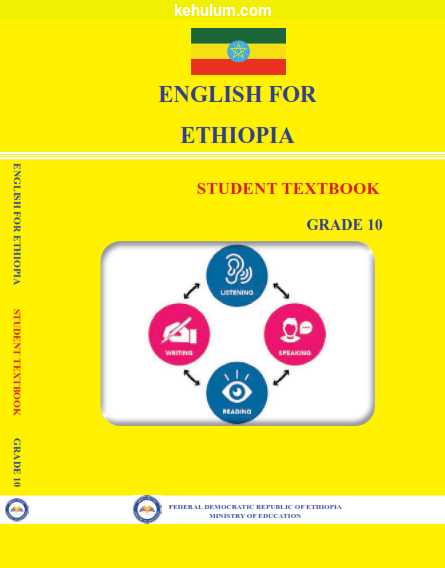The New Curriculum grade 10 History Student Textbook contains 9 units, they are:
- Unit 1: Development of Capitalism and Nationalism 1815-1914
- Unit 2: Africa & the Colonial Experience(1880s -1960s)
- Unit 3: Social, Economic & Political Developments in Ethiopia mid-19th C. to 1941
- Unit 4: Society and Politics in the Age of World Wars 1914-1945
- Unit 5: Global and Regional Developments Since 1945
- Unit 6: Ethiopia: Internal Developments and External Influences from 1941 to 1991
- Unit 7: Africa Since 1960
- Unit 8: Post-1991 Developments in Ethiopia
- Unit 9: Indigenous Knowledge and Heritages of Ethiopia
Unit 1 - Development of Capitalism and Nationalism 1815-1914
- Examines the features of capitalism, including the role of the Industrial Revolution
- Explores the growth of nationalist movements and the unification of Italy and Germany
Unit 2 - Africa & the Colonial Experience (1880s-1960s)
- Provides a general background on European colonialism in Africa
- Discusses the motives, scramble for Africa, colonial policies, and impacts of colonial rule
Unit 3 - Social, Economic & Political Developments in Ethiopia mid 19th c to 1941
- Covers long-distance trade, the making of the modern Ethiopian state, external aggression, and the patriotic resistance
Unit 4 - Society and Politics in the Age of World Wars 1914-1945
- Examines the causes and consequences of World War I, the Russian Revolution, the League of Nations, the Great Depression, and the rise of fascism
Unit 5 - Global and Regional Developments Since 1945
- Covers the formation, mission, and achievements of the United Nations
- Examines the rise of the superpowers and the onset of the Cold War
- Discusses the situations in Asia during the Cold War period
- Looks at the Non-Aligned Movement and the Arab-Israeli conflict
- Explores the collapse of the Soviet Union
Unit 6 - Ethiopia: Internal Developments and External Influences from 1941 to 1991
- Outlines the major administrative reforms and socio-economic conditions in post-liberation Ethiopia
- Discusses early opposition movements against imperial rule
- Analyzes the Ethiopian Revolution and the fall of the monarchy
- Examines the Ethio-Somalia war, the question of Eritrea, and the fall of the Derg regime
Unit 7 - Africa Since 1960
- Explores the rise of independent states in different regions of Africa
- Covers the struggles for economic independence and major contemporary issues in Africa
Unit 8 - Post- 1991 Developments in Ethiopia
- Discusses the Transitional Government of Ethiopia and the formation of the FDRE
- Examines the hydro-political history of the Nile Basin and development challenges
Unit 9 - Indigenous Knowledge and Heritages of Ethiopia
- Highlights the role and characteristics of indigenous knowledge systems
- Provides an overview of the different types of heritages in Ethiopia



















